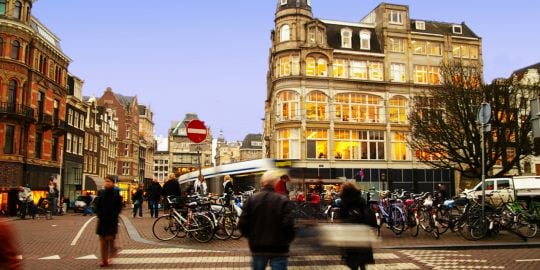Hi everyone,
Next month, I am supposed to move to the Netherlands from Korea. As you might know Korea is a very safe place right now. Number of cases are very low. Schools are open. Offices never closed. And so on... and in my opinion, it's all because the govt and the people are on the same page regarding strategy around masks, social distancing etc.
What I read from Dutch News is that second wave is coming. But RIVM is not prepared, their recommendations are usually based on available knowledge but lacks erring on the side of caution, politicians are divided, and people seems to be more open to the idea of enabling herd immunity ( no scientific proof yet).
In short, the cultural differences and how populations feel about the pandemic is different.
I have a few questions for the forum members:
1. Is my feeling correct that Dutch population is not very concerned about the spread of corona?
2. If I tell my employer that I don't want to move to the Netherlands for another three months, would they perceive me being naive as I am over exaggerating the threat (in their opinion)
3. If you were in my shoes, how many cases per day would deter you from moving?
Move to Netherlands and Covid
Hi and welcome to the Forum.
I think that South Korea had learned its lessons from its poor handling of the MERS epidemic that had hit it 5 years earlier and was much better placed than many countries in that it had existing methods of tracking and tracing and the ability to expand medical facilities very quickly when needed.
To answer your questions (and these are my opinions):
1. Concerned, very, but are more focussed in getting on with life while still dealing with the pandemic. You should bear in mind that the forecasted 2nd wave is currently moving through Europe. The Netherlands are members of the EU and I think there was hope early on in the year that there would be some coordinated effort to deal with COVID and it would go away. By the time other members saw how Italy was initially left to sort it out by itself, it was too late and all were playing catch up - some being better equipped than others, for example, the UK had disposed of the majority of its testing capacity, whereas the Germans hadn't. Also, Holland was initially only significantly affected in the South and West of the country, so there was an early mindset of "pandemic, what pandemic" in other parts; now everybody is affected.
2. Unless it's affected a person, most will think you are over exaggerating; life, in general, is safe providing you maintain social distancing rules; people are not going out on the street and catching COVID by going about their daily business; the significant majority of victims are the elderly and people with existing medical conditions, but they are catching it because they or someone in their circle has not complied with social distancing. If you are young and healthy, then yes you should be careful, but your life still goes on.
3. I think that's probably not a good milestone; the majority of people who had COVID have survived; treatments are being developed, medical staff are now experienced in dealing with it, more importantly, vaccines are being developed. To put this into perspective, in the Netherlands you are 4 times more likely to die of cancer and 3 times more likely to die of a heart attack than you are from COVID. Another interesting statistic is that Holland had really got the disease under control (single numbers) by June; at one stage you had a better chance of being knocked off your bike.
Life is a gamble for all of us, if you're a naturally cautious person then perhaps staying where you are comfortable is the best bet. Personally, I wouldn't let this affect life decisions unless I was at high risk of catching it.
Hope this has helped.
Cynic
Expat Team
Thanks, Cynic. Appreciate the detailed reply.









